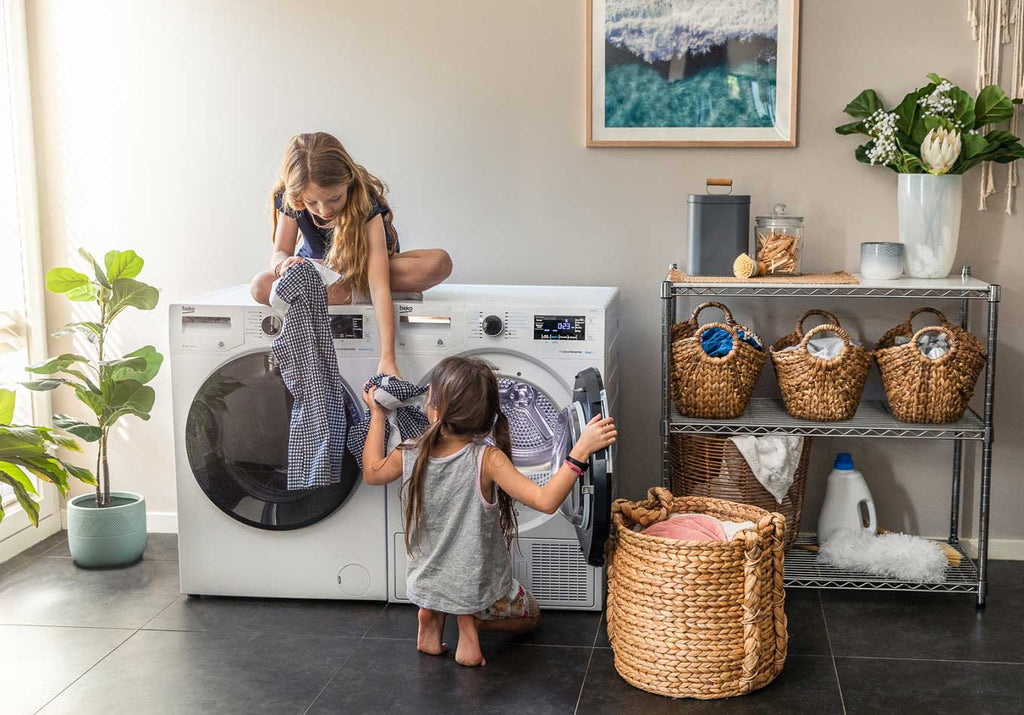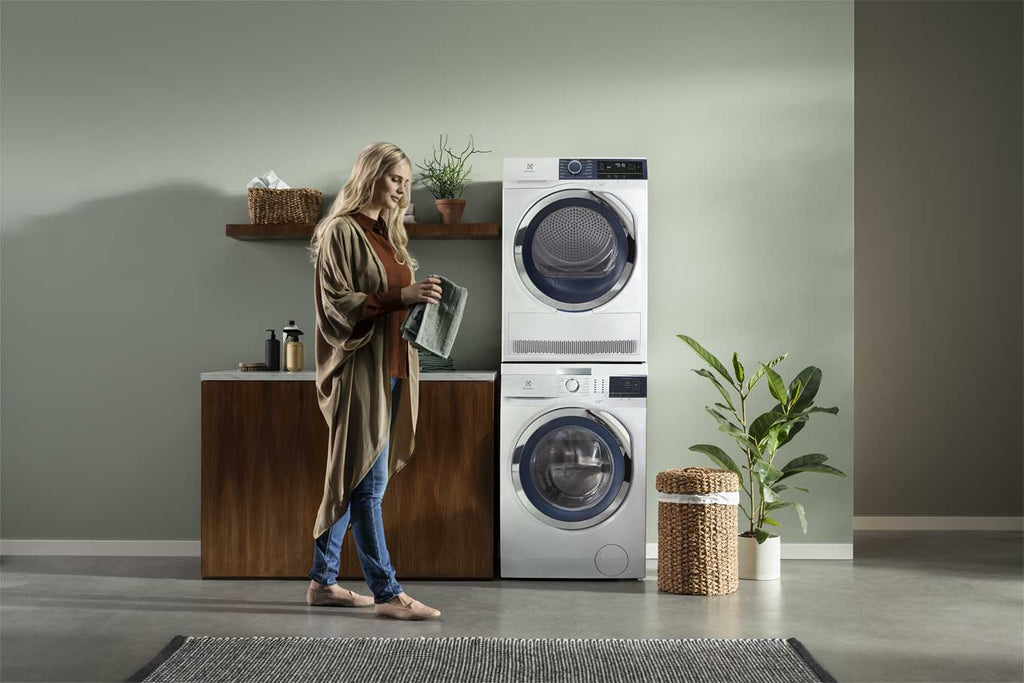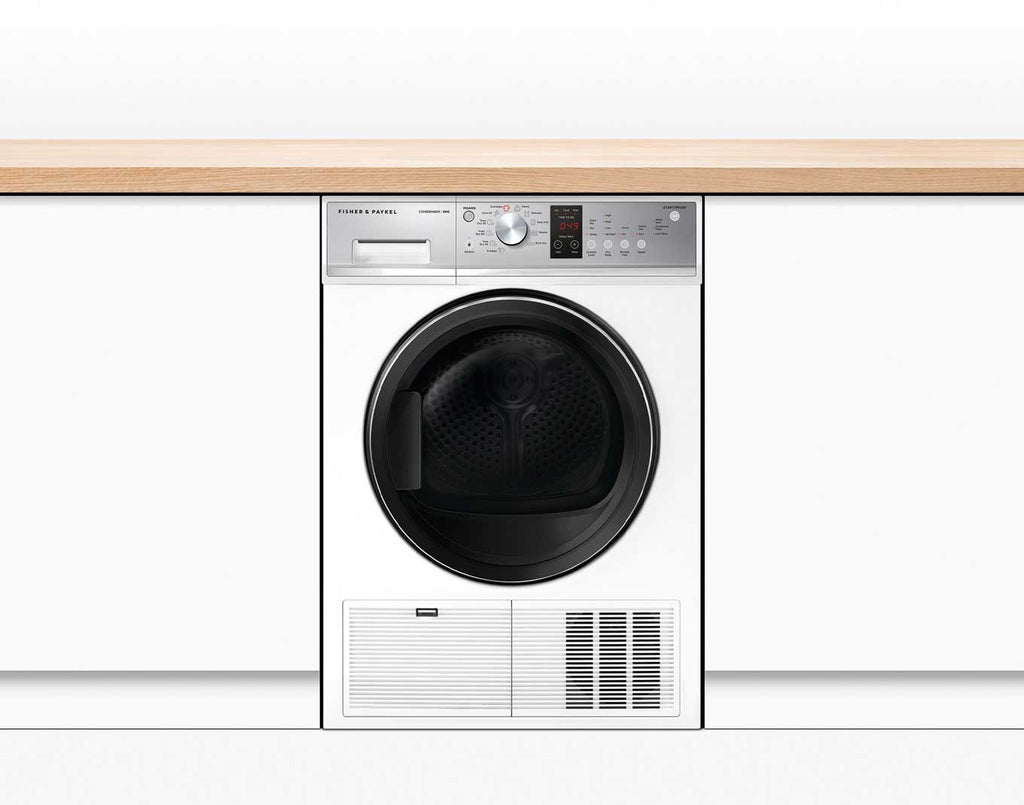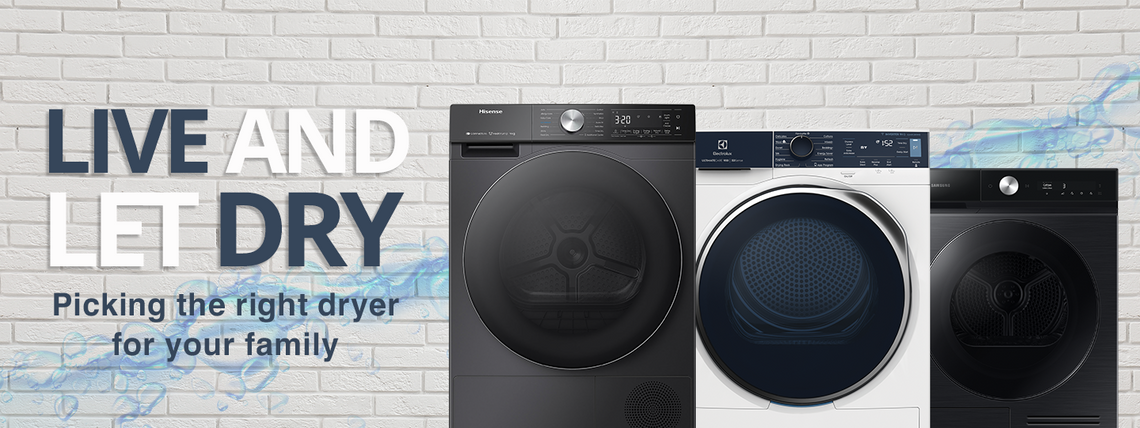Dryers! The quiet achiever of the household, reliably stepping up to dry your work shirt during whatever cyclonic weather is pelting the Great Southern Land this week. People often choose to buy a dryer when they need one the most: when it's too wet or too cold, or when they're too lazy to hang out their clothes.
Choosing the right dryer can be hard, however we hope this guide helps to simplify finding the best dryer for you and your family.
There are three different types of clothes dryer available:
Vented Dryers
Vented dryers are probably what you think of when you think about a clothes dryer. Vented dryers dry your clothes using hot air and tumbling action. The hot, damp air escapes through the vents in your dryer.
Keep this in mind when deciding where to place your vented dryer. Place it in a well ventilated area to stop hot, moist air from accumulating in your home.
These dryers use the most energy to run, however they’re often the cheapest option to buy. If you use your dryer regularly you may want to consider getting a heat pump dryer, both of which are considerably better on electricity usage.
See our range of vented dryers here.

Heat Pump Dryers
Heat pump clothes dryers are famous for their energy saving benefits and ridiculously high energy ratings.
How do heat pump dryers work?
Heat pump dryers use heat pump technology to heat air to dry clothes. They then cool and dehumidify the air before reheating and recirculating it.
Pros and Cons of Heat Pump Dryers
Pros: there's a lot to love about a heat pump. Heat pump dryers are much more energy efficient than vented dryers. They are also gentler on clothing since they operate at a lower temperature.
Heat pump dryers don't require a ventilated area like a vented dryer does, so they're good for apartment living. You can also stack them on top of a front load washer to maximise vertical space.
Cons: heat pump dryers take longer to dry clothes than a vented dryer. The lower temperatures they use result in a longer drying time.
Heat pump dryers are also typically the most expensive dryer option to buy.
See our range of heat pump dryers here.

Condenser Dryers
Condenser dryers, similar to the above options, also use hot air to dry clothes. However, they extract the moisture from the clothing and the air and store it in a tank as condensed water, before releasing the cooled, dehumidified air back.
These dryers typically use higher temperatures than heat pumps, so they dry clothes faster. However, these dryers require you to empty their condenser tank periodically, or have it plumbed to a drain. Unfortunately, they also can’t be wall mounted.
See our range of condenser dryers here.

Choosing the size dryer for you
If you usually use a dryer to dry your clothes, match the size of your dryer to the size of your washing machine. If your dryer is too small, you will have to do two or more drying cycles for every one load of washing. Waiting around for the dryer to finish is tedious at best.
Here are some guidelines you can follow if you’re still not sure.
| Size | Best suited for |
| 4kg - 6kg |
Couples who machine dry their clothes most or all of the time. Larger families who prefer to line dry their clothes, and use a dryer for emergencies/during wet weather. |
| 6kg - 8kg |
Small families who machine dry their clothes most or all of the time Larger families (4+ people) who use a mix of line drying and machine drying. |
| 9kg+ |
Large families who machine dry their clothes most of the time* |
*These figures are approximate and depend on the frequency and size of your loads.
Other things to Consider
Consider the frequency of your drying
If you wash your clothes and dry them in a dryer regularly, consider a more energy efficient dryer like a heat pump dryer. These also reduce the damage done to clothes as they use a lower heat, making them a better choice for regular machine drying.
Best dryer for frequent drying: Heat Pump Dryer
Best dryer for infrequent drying: Vented Dryer
Choosing the right dryer for the area
If you’ve got ample space in your laundry area, you’ll have no issues with a vented or condenser dryer. Vented dryers can also be wall mounted to save extra space.
The main thing to consider is that there is ample ventilation in the area as these dryers expel hot air which can make the area moist and hot. If you don’t have a well ventilated area, heat pump dryers are a great option as they won’t create any extra heat or humidity as they do not expel any hot air.
Best dryer for poorly ventilated areas: Heat Pump Dryer, Condenser Dryer


